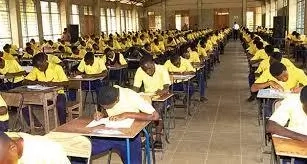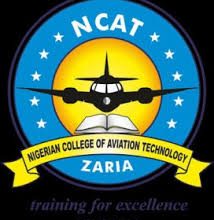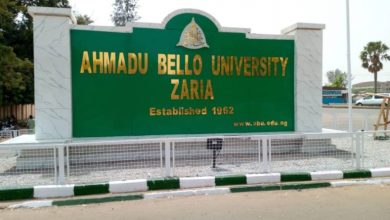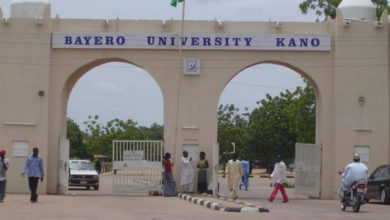The Importance of Secondary Education in Nigeria
Here in this post, we are going to outline and discuss the importance of secondary education in Nigeria. we hope you find this helpful.
When the importance of a thing is unknown, unclear or ambiguous, abuse or being undermined is certainly inevitable.
👉 Relocate to Canada Today!
Live, Study and Work in Canada. No Payment is Required! Hurry Now click here to Apply >> Immigrate to CanadaThis saying proves true in the case of secondary education in Nigeria. Hence, the need to consider in this discusses the importance of secondary education in Nigeria.
Read Also: Top 20 Most Expensive Secondary Schools In Nigeria

With the establishment of secondary education in Nigeria in 1859, and the transition from 6-5-4 system of education to the introduction of 6-3-3-4 system of education in 1998, it might be safe; to conclude that secondary school education is of vital importance to continuing education in Nigeria.
The 6-3-3-4 system provides for a child to spend 6 years in primary school, 3 years in junior secondary school and the last 4 years in a tertiary institution of learning.
Going by the division of the secondary education into two, the child is expected to have gone through the first three years of studies and if deemed academically sound after the first three years, can then proceed to senior secondary. In an event where the child is not academically sound enough, he can learn a trade or go to a technical school.
Read Also: Secondary School Curriculum In Nigeria
Suffice to say that a discussion on the importance of secondary education in Nigeria should not be ventured into without giving recourse to the National Policy on Pducation.
This goes a very long way, in presenting from the stage of policy formulation, the importance of secondary education in Nigeria.
👉 Relocate to Canada Today!
Live, Study and Work in Canada. No Payment is Required! Hurry Now click here to Apply >> Immigrate to CanadaSection 5 of the national policy on education, puts forward some of the importance of secondary education in Nigeria. It is also ideal, to consider, some identifiable importance of secondary education in Nigeria as it has been observed over the years.
- Provide an increasing number of primary pupils the opportunity for education of higher level, irrespective of social, religious and ethnic background.
- Diversified curriculum to cater for difference in talents, opportunities and roles posed by or open to students after their secondary course.
- Equip students to live effectively in our modern age of science and technology.
- Develop and project Nigerian culture, art and language as well as the world’s cultural heritage.
- Raise a generation of people who can think for themselves, respect the feelings of others, respect the dignity of labor, and appreciate those values specified under our broad national aims, and live as one citizen.
- Foster Nigerian unity with an emphasis on the common lines that unites us.
- Inspire students with the desire for achievement and self-improvement, both at school and late in life.
Read Also: Cost Of Starting A School In Nigeria
Provide An Increasing Number Of Primary Pupils The Opportunity For Education Of Higher Level, Irrespective Of Social, Religious And Ethnic Background:
For instance, the National Bureau of Statistics in 2018 released the education statistics report which revealed that 4,787,317 enrolled in public junior secondary schools while 1,051,670 enrolled in private junior secondary schools.
The report went further to unveil the fact that 4,475,309 students enrolled in senior secondary schools while 911,561 students enrolled in private senior secondary schools. All of these figures were higher than what was recorded in 2015.
This shows that secondary school education in Nigeria is making more room for more children to have access to secondary education.
Worthy of note, is the fact that these schools are scattered around different communities across Nigeria, giving equal opportunity to everyone.
Diversified Curriculum To Cater For Difference In Talents, Opportunities And Roles Posed By Or Open To Students After Their Secondary Course:
Secondary education both at junior and senior secondary school level has a curriculum tailored in such a way that variety of talents are successfully catered for.
For instance, the junior secondary school offers subjects that cover science, art and humanities, business, basic technology and the likes. The secondary school on the other hand, gives room for specialization in science, arts and humanities and the likes.
All of which helps students to focus in an area and carve a niche for themselves, irrespective of there are of strength or interest.
Read Also: The Role of Federal Government in Education in Nigeria
Equip Students To Live Effectively In Our Modern Age Of Science And Technology:
The level of information and exposure that secondary school education provides for students, helps position students for the development in science and technology. Recently, some secondary schools are even beginning to expose their students to coding classes among other things.
Without a doubt, all of these help contribute in no little way, to equipping the student to live effectively in a fast paced and ever advancing society.
Develop And Project Nigerian Culture, Art and Language, As Well As the World’s Cultural Heritage:
Secondary education in Nigeria is intentional about promoting our rich cultural heritage as well as what the world offers by all means.
This is approached both on the platform of academics as well as other platforms just to drive home the message. A good understanding of what is acceptable within the Nigeria African cultural heritage is established as well as what obtains in other climes. This helps them appreciate the Nigerian cultural heritage as well as those of other climes.
Raise A Generation Of People Who Can Think For Themselves, Respect The Feelings Of Others, Respect The Dignity Of Labor, And Appreciate Those Values Specified Under Our Broad National Aims, And Live As One Citizen:
By all means possible both formal, semi-formal and non-formal means, secondary school education, helps to build students who can make sound decisions after weighing in on the options before them. It also helps students to understand that for every decision made, there are consequences.
It helps build a solid value system in students. By dishing out responsibilities, assignments and the likes with commensurate reward or discipline attached, the students are thought to appreciate the dignity of labor, while other values are being transferred in the process.
Foster Nigerian Unity With An Emphasis On The Common Lines That Unites Us:
Secondary education is deliberate about communicating the importance of our unity as a nation irrespective of our language, color of our skin, cultural diversity and the likes.
Read Also: Importance of Business Education To Students In Nigeria
Inspire Students With The Desire For Achievement And Self-Improvement, Both At School And Late In Life:
Secondary school education, designs a reward system for outstanding performance both for academics and extra curricula activities.
This helps in no little way to spur students to what to make exceptional achievement both in the classroom as well as outside. This is a major attribute needed for success in life.
The importance of secondary education in Nigeria among other things can be captured in one word; bring about national development on the long run.








